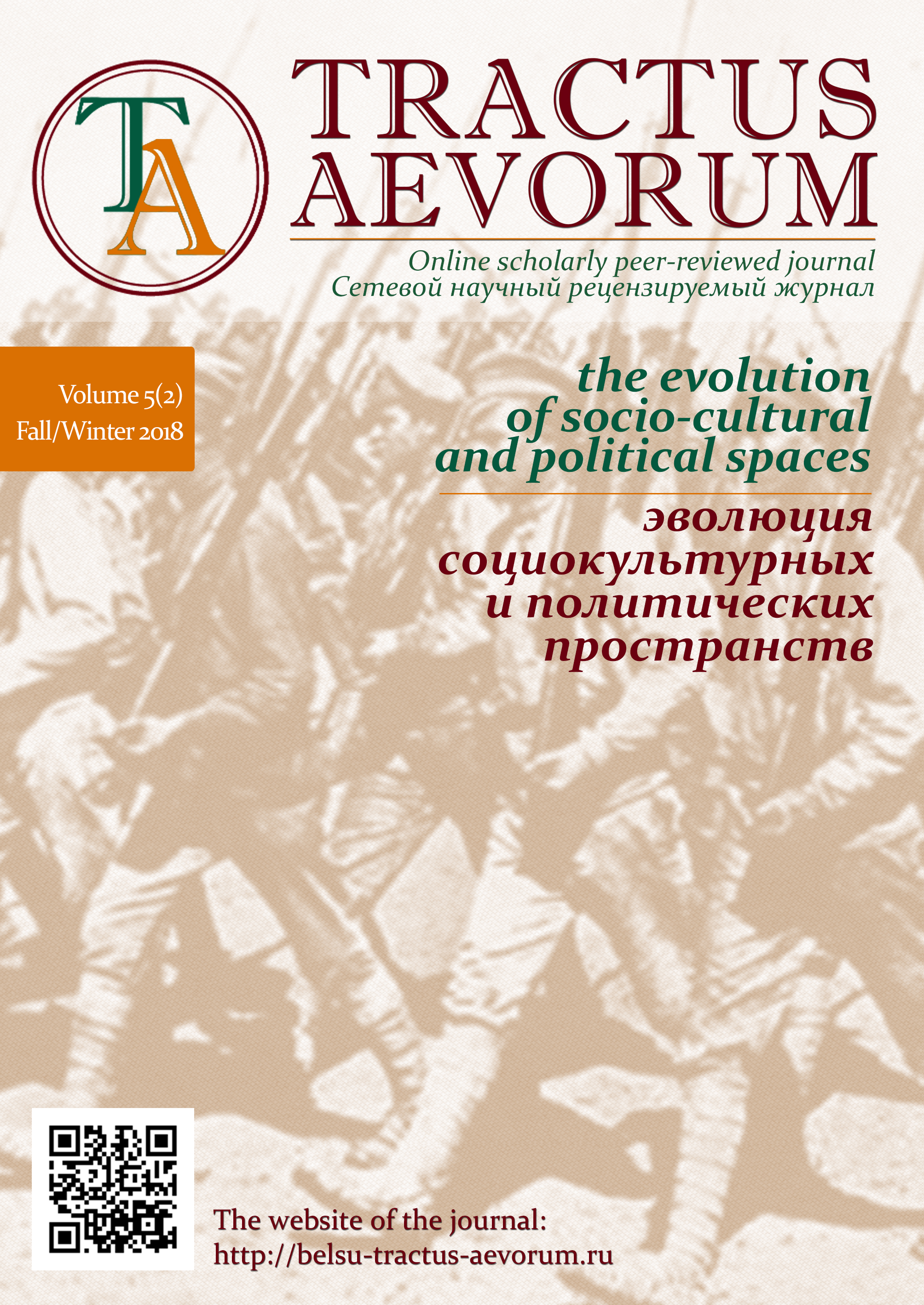
TRACTUS AEVORUM 5 (2). Fall/Winter 2018
|
Contents
A DISCUSSION OF THE CIVIL WAR IN RUSSIA
A century has passed since the beginning of the tragic events of the deadly Civil War in Russia in the early twentieth century, which not only dramatically changed the country, but also affected (albeit to a lesser degree) nearly all regions of the world. It is obvious that the debates among historians and scholars of neighboring disciplines on various aspects of the Civil War will not be resolved any time soon, and that many lacuna within this study remain to be filled in. We still lack a consensus on the answers to fundamental questions in the history of the Russian Civil War and its meaning. This section presents the views of three historians who specialize in the given (or adjacent) field regarding several key aspects of the Civil War, including the transformation of the term “civil war” in the context of the traumatic developments of 1917–1922 (there are also other variants of the Russian Civil War chronology), the reasons why the “third force” became insolvent over the course of this acute civil conflict, and the conflict’s periodization.
|
|
THE CIVIL WAR IN RUSSIA—DEFINITION, CAUSES, AND PERIODIZATION
Vasilii Zh. Tsvetkov
Moscow Pedagogical State University
|
|
THE CIVIL WAR IN RUSSIA (PROBLEMS OF UNDERSTANDING)
Mikhail V. Bryantsev
I. G. Petrovskii Bryansk State University
|
|
THE SEARCH FOR HISTORICAL CONTINUITY IN THE ASSESSMENT OF THE CIVIL WAR IN RUSSIA
Elena Iu. Prokofieva
Belgorod National Research University
|
|
TRANSITIONAL EPOCHS
THROWING BALLAST OVERBOARD:
THE ATTITUDE OF THE EASTERN ROMAN EMPIRE
TOWARDS THE WEST IN THE FIFTH CENTURY AD
Mikhail V. Gratsianskiy
Moscow State University
The year 395 marked a turning point in the fortunes of the Roman Empire. The division of the imperial territory into two portions proved to be final and, in the short-term historical perspective, led to the downfall of the western part. The article suggests that this event was caused by a deliberate position taken by the ruling elites of the Eastern Roman Empire toward their western counterparts. The main reason for the downfall of the West thus lies in the fact that the eastern government refused to subsidize the western infrastructural and military needs with its money and other resources, which up to that time had been the necessary condition for the maintenance of the Roman civilization in the westernmost part of the Roman Empire—praefectura Galliarum. The eastern ruling class used the unique situation of the virtual absence of the Roman army and its commanders, which had withdrawn for operations in Italy, to establish the rule of a civilian government. The refusal to support the West economically led to the rise of the eastern economy, as well as to the growth in importance of eastern regions such as Syria and Egypt, which were economically the strongest. These conditions, created within the Eastern Empire after the secession of the West, in many respects resembled those of the same territories during the Hellenistic period, with the exception that now they were kept together by the efficient unifying institutions of the Roman state of Late Antiquity.
|
|
EMPIRES AND PERIPHERIES
THE NEW AND THE OLD IN THE LIFE OF PROVINCIAL OFFICIALDOM DURING BOURGEOIS MODERNIZATION
OF THE RUSSIAN EMPIRE
Ivan T. Shatokhin, Alesia A. Titova
Belgorod National Research University
During Russia`s capitalist modernization in the second half of the nineteenth century, guberniia and uezd officialdom acted as an intermediary between the top echelons of power and the people, bringing the legislature to the latter and adapting it to local conditions. At the same time, bourgeois reforms created a “modern” official who was to represent the looming rule of law state (pravomernoe gosudarstvo). A modernizing Russian society demanded an updated administration. The transformation of the corrupt, poorly-educated, and socially self-contained pre-reform Russian provincial officialdom into a modern Weberian rational bureaucracy was never completed in the imperial period. It naturally took time and effort for the bureaucracy to slowly divest itself of many of these earlier flaws. Still, a number of significant changes occurred, including an end to estate limitations, a growth in professionalization and specialization of provincial Crown officials, and shifts in the socio-cultural values and needs of the officialdom.
|
|
MISCELLANEA
NOTES ON THE SECOND BELGOROD SUMMER SCHOOL
IN BYZANTINE STUDIES
Evgenii I. Miroshnichenko
St. Petersburg State University
The author gives an overview of the Second Belgorod Summer School in Byzantine Studies which was held at Belgorod National Research University in August 2018.
|

